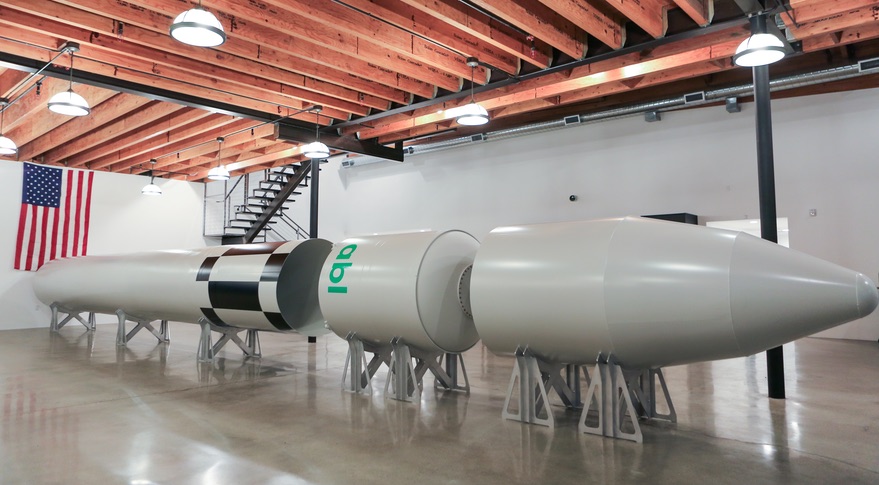
A three-year research and development agreement was signed July 10, but AFRL did not disclose it until Jan. 9 at the company’s request
WASHINGTON — The Air Force Research Laboratory announced Jan. 9 that it signed an agreement with small launch startup ABL Space Systems to jointly develop and test rocket propulsion components for future use in launch vehicles.
A three-year cooperative research and development agreement, or CRADA, was signed July 10, 2019, but AFRL did not disclose it until now at the company’s request.
ABL founder and chief financial officer Dan Piemont told SpaceNews that the company did not want the CRADA to be announced until test activities were underway at Edwards Air Force Base test site 1-56, in California.
Based in El Segundo, California, ABL was founded by former SpaceX engineers in 2017 to develop low-cost launch vehicles for the small satellite industry. The company’s RS1 vehicle was designed to lift 1,200 kilograms into low Earth orbit at a price of $12 million per launch.
ABL announced on July 22 — just days after signing the cooperative agreement with AFRL — that Lockheed Martin Ventures would become an investor in the company.
Nils Sedano, technical adviser on rocket propulsion systems at AFRL, told SpaceNews Jan. 9 that ABL has “come in and established their presence at area 1-56 of the AFRL rocket propulsion division.”
AFRL is the primary rocket propulsion scientific research and development center for the U.S. Air Force.
Over the next three years, AFRL will evaluate test data provided by ABL as part of broader effort to figure out new ways to launch payloads quickly and on short notice, Sedano said. “Rapid launch capability is important for current and future Air Force mission needs.” AFRL also is interested in additive manufacturing technology developed by ABL.
A key capability that AFRL wants to demonstrate with ABL is remote launch, said Sedano. That would allow the military, for example, to launch payloads into space from austere locations. “Remote launch is a particular area of focus of this CRADA,” he said.
Current launch facilities are typically fixed sites with on-site personnel and support infrastructure. Launch sites are specific to the vehicle, the propellants and are limited by geography. The Air Force is “seeking to solve these current limitations and pursue more dynamic, flexible, deployable, and responsive operations,” AFRL said in a news release.
"hardware" - Google News
January 10, 2020 at 06:56AM
https://ift.tt/30aX20u
Small launch startup ABL Space Systems to test rocket hardware at Edwards Air Force Base - SpaceNews
"hardware" - Google News
https://ift.tt/34VCCtX
Shoes Man Tutorial
Pos News Update
Meme Update
Korean Entertainment News
Japan News Update
No comments:
Post a Comment